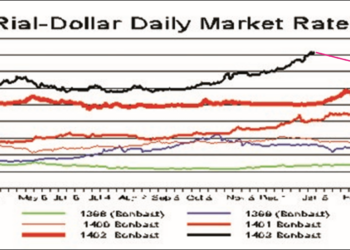The Afghans said little about the contract, which they were effectively coerced into signing. One year ago, the Islamic Republic stopped all tanker trucks carrying oil products from Iraq and Turkmenistan across Iran into Afghanistan.
After a while, some Iranian officials said the border closure was because Iran was concerned that the oil products were going to American troops in Afghanistan.
However, there has never been any secret about the US troops supply routes through Pakistan and Central Asia because there has often been controversy over them. Furthermore, the US armed forces always use routes they control, and they would not control a route traversing Iran.
Afghan officials said it was a few weeks before they learned the real cause of the border closure. They said Iran had told them it would no longer allow fuel products from Iraq and Turkmenistan into Afghanistan and that the Afghans would have cuts.
The Afghans complained bitterly that Iran demanded prices that were higher than for Iraqi and Turkmenistani fuel. Afghanistan eventually gave in and began importing Iranian refined products. Afghanistan produces no oil and has no refineries.
However, last week it signed a contract with the China National Petroleum Corporation (CNPC) to develop Afghanistan’s first oilfield and build its first refinery. That suggests the forced link to Iranian oil may not be long term. The oilfield development deal with CNPC was signed two days after the product purchasing contract was signed with Iran.
Iranian Deputy Oil Minister Ali-Reza Zeighami said the sales agreement was about two-thirds for fuel oil (which includes diesel and fuel for agricultural, industrial and heating purposes), one-quarter for gasoline and about 10 percent for jet fuel. He didn’t put a total value on the deal, saying only that the Afghans would pay market rates.
He also did not say what proportion of Afghanistan’s fuel consumption was represented by the contract. Several months ago, Iran said it hoped Afghanistan would buy all its fuel products from Iran, creating a dependency that Kabul clearly does not want.
Afghan officials said back then that they would not agree to such an arrangement because they couldn’t afford to pay Iran’s higher prices for all their fuel imports.
Zeighami said that currently Iran exports only about 200,000 tons of fuel products annually. With the addition of the 1 million tons to be exported to Afghanistan, Iran’s product exports will jump six-fold at Now Ruz.
The Afghan oilfield is located in the Amu Darya basin. Afghan officials said CNPC indicated low level production would begin within one year, but they did not say what that production level would be.
The oil contract makes China the largest foreign investor in Afghanistan. The Metallurgical Corporation of China has a large contract to develop an Afghan copper deposit.
China has signed many oil and gas development deals with Iran in recent years as European firms have walked out of Iran. But China has not converted many of those agreements into full-fledged contracts. Industry scuttlebutt says China is displeased with Iran’s contract demands.














